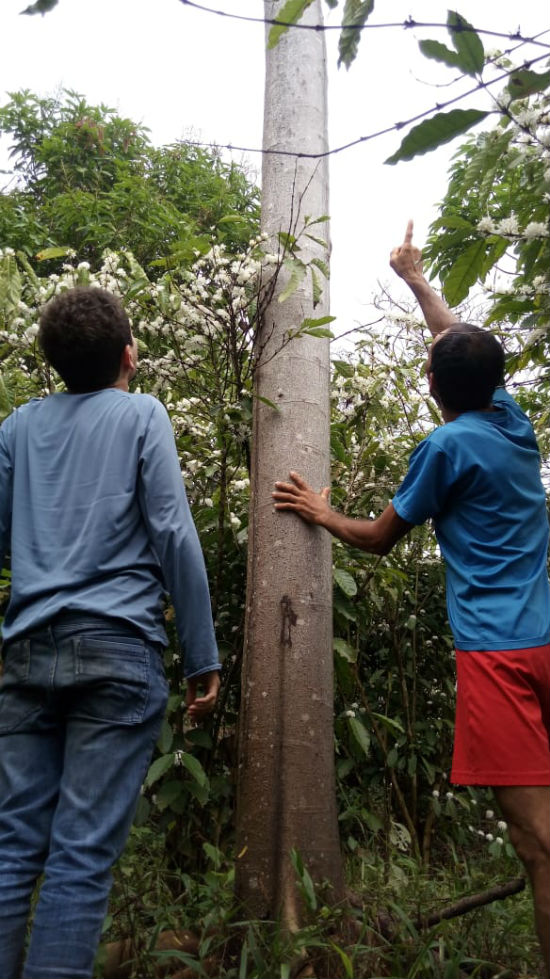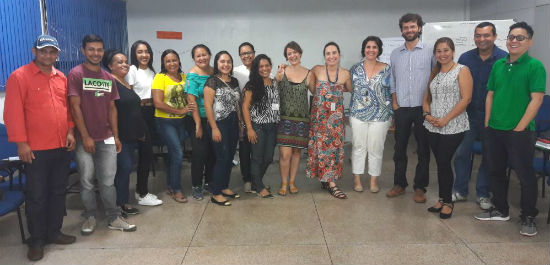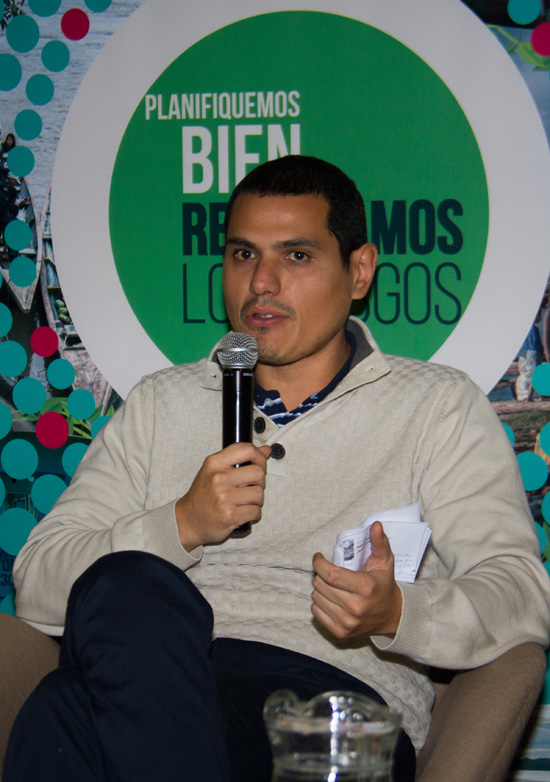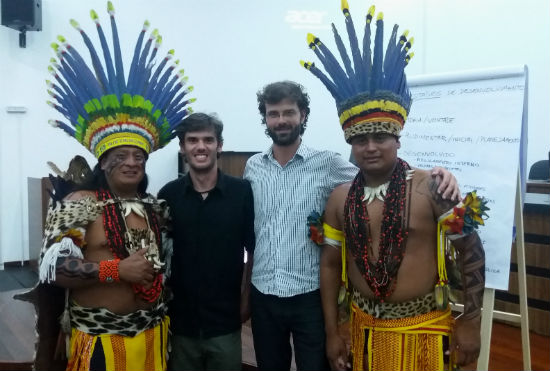Visiting forest restoration projects in the Brazilian Amazon

Understanding the forest restoration models used.

Understanding the forest restoration models used.

Participants of the Fazendinha APA’s ESs value chains workshop.
CSF-Brazil, in partnership with Native Amazon Operation (OPAN), has completed an analysis of the stock management and sales of the pirarucu fish in protected areas (PAs) in Amazonas state (AM), Brazil.

"Diagnosis of the Management of Pirarucu in Protected Areas of the Amazon" seminar participants. Photo credit: OPAN and CSF.
On August 7th, 2018, CSF-Brazil, the Forest Code Observatory (OCF) and the Brazilian Biodiversity Fund (Funbio) facilitated a "Dialogue on economic instruments and ecological identity for the Forest Code implementation." Forty-five professionals, representing government, research institutions and rural producers, attended the event in Brasília. The dialogue provided a forum to discuss possible ways of implementing the provisions of the Forest Code (Law 12.651 / 2012), including economic incentives, Legal Reserves (LRs) compensation, and the ecological identity requirement for compensation - according to the ruling of the Supreme Court Federal Court (STF) in February 2018 - with a special focus on the Environmental Reserve Quotas (CRAs) market.

Highway in Ecuador. Photo credit: Shutterstock/ Dr. Morley Read.
CSF-Brazil is thrilled to share the following three publications on the value chains of shrimp and crab fisheries on the Brazilian Amazon coast, written in partnership with the United Nations Educational, Scientific and Cultural Organization (UNESCO):
- "Piticaia and white shrimp in Maranhão state";
- "Regional Amazonian shrimp in Amapá state";

CSF-Peru's Interim Director José Carlos Rubio taking questions at the forum. Photo credit: Ana Perez/DAR.
Most decisions regarding the environmental and social impacts of infrastructure projects in the Brazilian Amazon are arbitrated by judges, which means that there are often no clear criteria to establish compensation values.
 CSF-Brazil Director, Pedro Gasparinetti, CSF-Brazil consultant, Rodrigo Ozorio, and leaders from the Wazare indigenous village.
CSF-Brazil Director, Pedro Gasparinetti, CSF-Brazil consultant, Rodrigo Ozorio, and leaders from the Wazare indigenous village.
For the past year, CSF-Bolivia has been working on an innovative platform called CASA Verde which aims to engage different sectors of Bolivian society including conservation NGOs, private companies, and the general public, who are interested in contributing to environmental conservation. The main objective of CASA Verde is to improve conservation of ecosystems that sustain life and productive activities in Bolivia by promoting greater participation and awareness in society. CASA Verde will also contribute to the implementation of the commitments assumed by Bolivia in the National Development Plan, as well as the achievement of the Sustainable Development Goals.